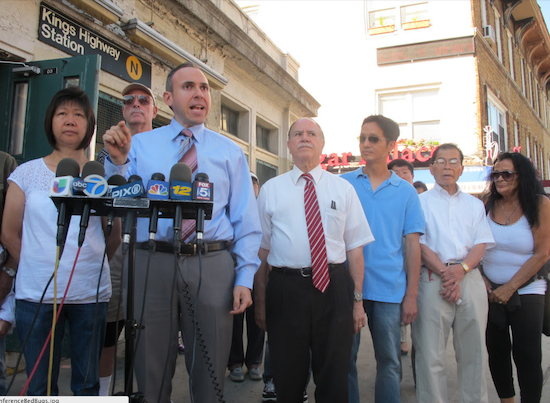Officials demand that MTA notify public of bedbug outbreaks on trains, buses

On Monday, a train conductor suffered multiple bed bug bites while operating an N train, but the public only became aware through the Transport Workers’ Union (TWU), which later advised of his medical treatment (the train was later fumigated). No official word came from the MTA, which does not have a formal policy for informing the public about these incidents.
“The cases revealed to the public so far have been very distributing,” said Councilmember Mark Treyger, who represents high-ridership neighborhoods like Bensonhurst, Gravesend, Brighton Beach and Coney Island. “There’s a health issue, but the economic factor can also not be ignored. If someone brings this home from the train, the cost to remedy it can be in the thousand dollar range. We’ve heard horror stories.”
For this reason, Councilmember Treyger, along with Assemblymember Bill Colton, Democratic District Leader-Elect Nancy Tong and a host of concerned residents held a press conference at the Kings Highway N station Thursday morning to propose legislation that would require the MTA to take the same steps to inform its customers about bed bug infestations as it does for other emergencies or service delays, including through social media outreach. The package of legislation (bills are being presented on both the city and state level) are calling on the MTA to inform the public within 24 hours of any cases of bedbugs on city buses or subway trains.

Brooklyn Boro
View MoreNew York City’s most populous borough, Brooklyn, is home to nearly 2.6 million residents. If Brooklyn were an independent city it would be the fourth largest city in the United States. While Brooklyn has become the epitome of ‘cool and hip’ in recent years, for those that were born here, raised families here and improved communities over the years, Brooklyn has never been ‘uncool’.